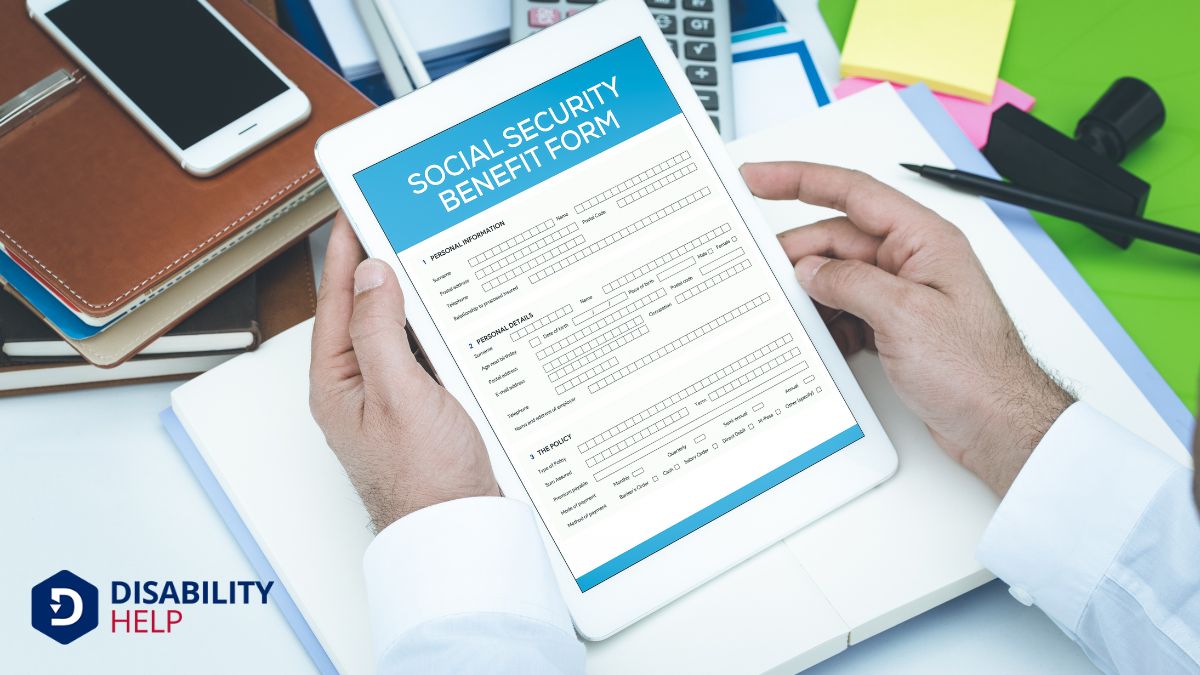When we discuss financial support for individuals with disabilities, it's essential to distinguish between Supplemental Security Income (SSI) and Social Security Disability Insurance (SSDI)A U.S. government program that provides financial assistance to individuals who are unable to work d.... Both programs aim to provide aid, but they operate under different criteria and funding sources. SSI is a needs-based program designed for those with limited income, while SSDI is based on work history. Curious about how these programs differ in benefits and eligibility? Let's explore further.
Key Takeaways
- SSI is a needs-based program aiding individuals with limited income and resources, without requiring a work history.
- SSDI is an insurance program requiring a sufficient work history and payment of Social Security taxes.
- SSI benefits are funded by general tax revenues, while SSDI is funded through payroll taxes.
- SSI eligibility focuses on age, blindnessThe condition of having no vision or very limited visual perception., or disability, with strict asset limits.
- SSDI has a more complex application process compared to the simpler SSI application.
Understanding Supplemental Security Income (SSI)

Supplemental Security Income (SSI) serves as an essential financial aid program for individuals with limited income and resources who are aged, blind, or disabled. It’s designed to provide financial assistance for basic needs like food, clothing, and shelter.
We recognize that maneuvering through this program can be complex, so we want to break it down for you. SSI is funded by general tax revenues, not Social Security taxes, which makes it different from SSDI.
We don’t need prior work history to qualify, which is vital for those who haven't worked enough to earn Social Security credits. By supporting those in need, SSI aims to enhance the quality of life for individuals facing significant challenges.
Let's explore how it can make a difference in people's lives.
Eligibility Criteria for SSI
To qualify for Supplemental Security Income (SSI), individuals must meet specific criteria that assess financial need and disability status. We need to understand that SSI is designed for those with limited income and resources.
First, our assets shouldn't exceed $2,000 for individuals or $3,000 for couples. This includes cash, bank accounts, and property, but excludes essentials like our home and car.
Additionally, we must demonstrate that we're either aged 65 or older, blind, or disabled. The Social Security Administration evaluates disabilities based on our ability to work and perform daily activities.
It's important to remember that SSI isn't dependent on work history, unlike Social Security Disability InsuranceA form of insurance that provides income to individuals who are unable to work due to a disability. (SSDI). By meeting these criteria, we can determine our eligibility for SSI support.
Key Features of SSI Benefits
SSI benefits provide essential financial assistance to those who qualify, ensuring they can meet basic living needs. These benefits can make a significant difference in the lives of individuals who rely on them.
Understanding the key features of SSI is important for those steering through their financial options. Let’s look at what makes these benefits essential:
- Monthly Payments: These provide consistent financial support, helping us cover everyday expenses.
- MedicaidA U.S. government program that provides health coverage to eligible low-income individuals, includin... Access: SSI recipients often qualify for Medicaid, granting us access to necessary healthcare services.
- Resource Limits: To qualify, our assets must be below specific thresholds, ensuring aid goes to those truly in need.
- Living Arrangements Considered: The amount we receive can vary based on our living situation, allowing for fair distribution of resources.
These features collectively offer a lifeline to many deserving individuals.
Differences Between SSI and SSDI
While SSI benefits provide critical support, it's important to recognize the distinctions between SSI and SSDI, as they cater to different needs.
SSI is a needs-based program, offering financial assistance to low-income individuals who are elderly, blind, or disabled. It doesn't require work history.
In contrast, SSDI is an insurance program for those with a sufficient work history who've paid Social Security taxes. SSDI recipients must have a qualifying disability and earn sufficient work credits.
Additionally, SSI is funded by general taxes, whereas SSDI is funded through payroll taxes.
The application and approval process for SSDI can be more complex due to its reliance on past work history. Understanding these differences helps us navigate eligibility and choose the right program for our circumstances.
How to Apply for SSI

Applying for Supplemental Security Income (SSI) can seem intimidating, but breaking down the process step by step makes it manageable.
First, let's gather essential documents like identification, financial records, and medical information. We should visit the Social Security Administration (SSA) website or contact them directly for guidance.
Once we're ready, we can apply online, by phone, or in person at a local SSA office. It's important to stay organized and follow up on our application status.
Here’s what we need to do:
- Stay organized: Keep all documents in one place.
- Seek help: Don’t hesitate to ask family or friends for assistance.
- Be patient: The process can take time, but persistence pays off.
- Stay informed: Regularly check the status of our application.
Let's take it one step at a time.
Conclusion
In summary, we've explored how Supplemental Security Income (SSI) provides essential support to those in need, regardless of work history, unlike SSDI. SSI offers financial aid and Medicaid access to individuals who are aged, blind, or disabled with limited income. It's important to understand these differences when considering which program aligns with your needs. If you or someone you know might qualify for SSI, don't hesitate to apply and take full advantage of the benefits available.






